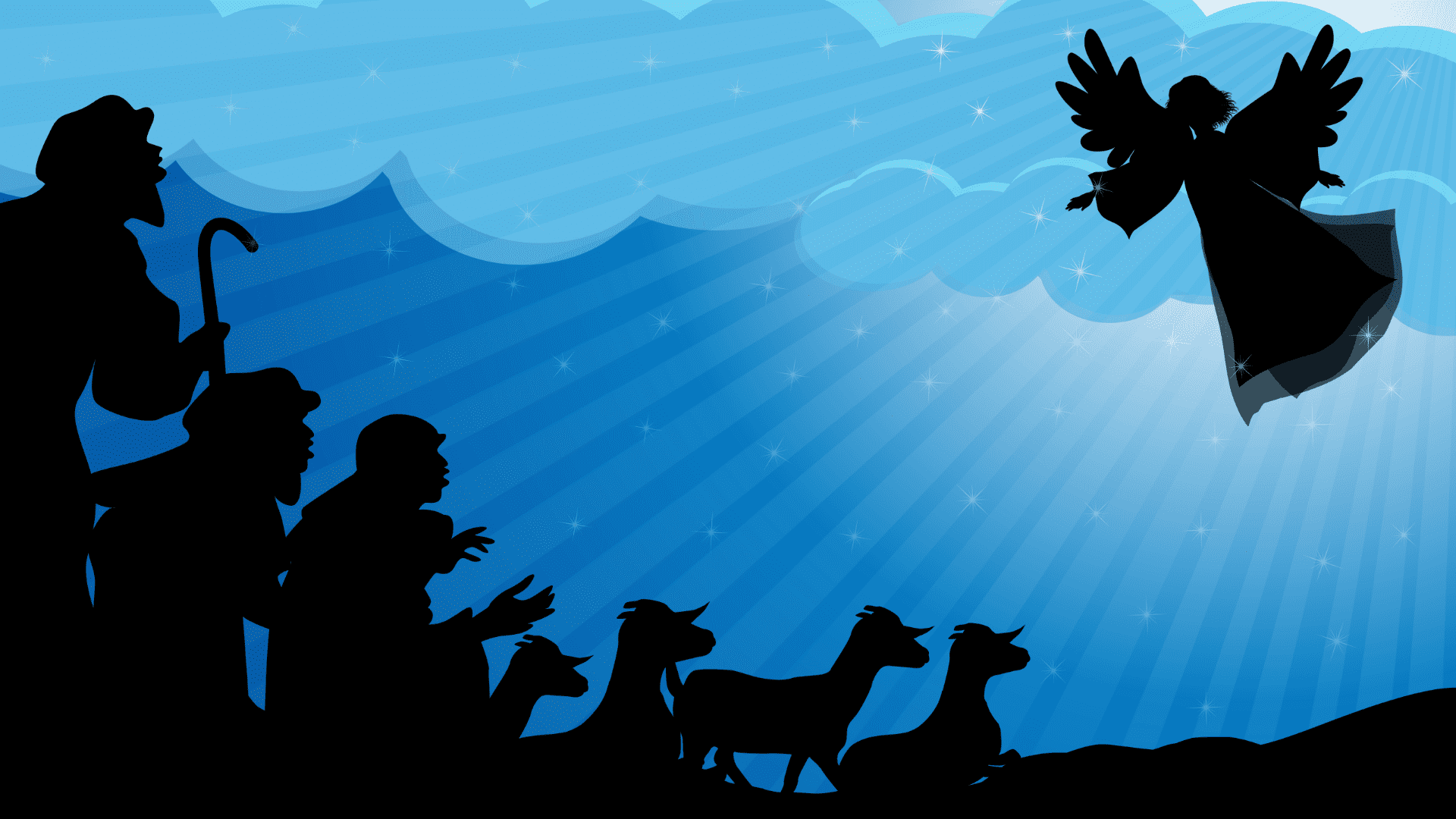Repenting of Religion (Luke 19:28-21:38)

This morning, we're starting a series about Jesus' last week before his death and resurrection. We are doing this to prepare for Easter, which is the central event of Jesus' life and all of history, according to the Bible.
I'd like you to think of a way of life that's opposed to Jesus Christ. What lifestyle do you think is completely against who he is, what he did, and what he taught?
Jesus once said:
Enter through the narrow gate. For wide is the gate and broad is the road that leads to destruction, and many enter through it. But small is the gate and narrow the road that leads to life, and only a few find it. (Matthew 7:13-14)
We all know that the small gate and narrow road is Jesus. What is the broad gate and road that leads to destruction?
If you're like me, you've always thought that the broad way is the irreligious way of open rebellion against Jesus. It's what we normally picture: there are two ways to live. One is the Christian life. The other is a life of sin and rebellion and immorality. The path of sin and rebellion and immorality is a path that leads to destruction.
If you think that, you're not alone. That's what I've thought most of my life. But I want to step back for a minute. It's true that irreligion and immorality is a way of life that is opposed to Jesus Christ and leads to destruction, but I don't think it's what Jesus had in mind when he talked about the broad gate and road. In fact, if you read through the Gospels, Jesus is repeatedly called a friend of these kinds of people.
I'd like to suggest that Jesus had a completely different group of people in mind when he spoke about a broad gate and road that leads to destruction. You see that he's talking to this group of people throughout the whole Sermon on the Mount. It's the same group of people he talks about when he says, "Watch out for false prophets. They come to you in sheep's clothing, but inwardly they are ferocious wolves" (Matthew 6:15). And also when he says that "not everyone who says to me, 'Lord, Lord,' will enter the kingdom of heaven," and again when he says that those who build their house on the sand will one day see it come crashing down (Matthew 6:21-27)?
Who is he talking about? Religious people. You see, traditionally we've got it all wrong. Traditionally, we've focused on two ways to live: God's way and man's way. We can choose to live our lives according to our own rules and desires, or we can submit and live for God and in his way. On the surface, that's true, but there's actually a third way of living that is just as evil and destructive – maybe even so – than open rebellion: living according to external religious regulations. In fact, Jesus said harsher things and had far more problems with religious people than he did with people we think of as sinners.
There are actually three ways to live: religion, irreligion, and gospel. Both religion and irreligion are destructive and deadly, but out of the two religions may be more dangerous.
There are few places that you see this more clearly than today's passage. Today's passage is about a moment that should have been perfect, but was completely wrecked by religion.
It was the last week of Jesus' life, and Jesus was arriving in Jerusalem as King. The psalmist had anticipated this event hundreds of years earlier when he wrote:
Lift up your heads, you gates;
be lifted up, you ancient doors,
that the King of glory may come in.
Who is this King of glory?
The LORD strong and mighty,
the LORD mighty in battle.
Lift up your heads, you gates;
lift them up, you ancient doors,
that the King of glory may come in.
Who is he, this King of glory?
The LORD Almighty—
he is the King of glory.
(Psalm 24:7-10)
As Jesus enters Jerusalem in Luke 20:37-38, he enters as God himself, the King of glory, arriving as a victor – the "LORD strong and mighty, the LORD mighty in battle." It is one of those moments that should have been pure joy.
But instead this moment became one of sorrow for Jesus. It's one of the few times in Scripture that we read of Jesus weeping. Instead of enjoying the moment, Jesus was led to weep over it. Luke 20:41-44 says:
As he approached Jerusalem and saw the city, he wept over it and said, "If you, even you, had only known on this day what would bring you peace—but now it is hidden from your eyes. The days will come on you when your enemies will build an embankment against you and encircle you and hem you in on every side. They will dash you to the ground, you and the children within your walls. They will not leave one stone on another, because you did not recognize the time of God's coming to you." (Luke 19:41-44)
Instead of enjoying the moment, it caused Jesus to weep. It was a moment that was ruined by religion and its destructive consequences.
In fact, this is the theme of not just this passage, but the next couple of chapters as well. Beginning in chapter 19:47 to the end of chapter 20, Jesus has a number of confrontations with religious people. In this section we get to see three of the problems with religion. It's possible that some of us may not realize how dangerous religion is. There are three problems with religion that we need to see from this passage.
One: Religion is selfish
Luke 19:45-46 says:
When Jesus entered the temple courts, he began to drive out those who were selling. "It is written," he said to them, "'My house will be a house of prayer'; but you have made it 'a den of robbers.'"
The temple was the meeting place between God and man, the place where God's presence dwelt among his people. But to the religious leaders of the day, the temple was a profit center. They had transformed the court of the Gentiles from a place of prayer into a supermarket, charging exorbitant prices. The religious leaders twisted the temple, using God as a means to an end. They were selfish.
Religion is incredibly selfish.
When we think of religious people who are selfish today, we're tempted to think of famous televangelists who are using God, so they can live opulent lifestyles. But we need to think a lot closer to home.
There was a father who never saw his sons. No matter how often he invited them, they never came to visit. They were always too busy. They told Dad that he wasn't important enough; that he was yesterday's news. One day the father took a chest and filled it with pieces of broken glass, and then he locked it. If you picked it up and shook it, it sounded like it was full of money. The boys started visiting, and in the last years of that man's life they had great times together. Eventually he died, and the boys opened up that chest and found nothing but broken glass. They had been fooled by their father.
The point of the story is not to say that God is like this father. God does not fool us. The point of the story is to ask why we are drawn to God. Is it for the stuff we think we'll get from him, or is it for the pleasure of God himself? John Piper asks: If you were to go to Heaven and have all the rewards laid out for you, the removal of penalty and the joys forevermore, but God was not there, could you rightly say that your joy was complete? How do you answer that question? Religion is selfish, and it wants what it can get for itself. Religion kills because religion turns the soul in on itself.
Two: Religion misses the point
I wish I had the time to read through all of chapter 20 with you. If you read chapter 20, it's a series of exchanges between Jesus and the religious leaders of the day. But it's tragic. If you had Jesus Christ standing right in front of you, what would you talk about? The religious people got into discussions that completely missed the point. Religion talks about all kinds of semi-important things but never gets to the heart of the issue. So you see them debate. "'Tell us by what authority you are doing these things,' they said. "Who gave you this authority?'" (Luke 20:2). "Is it right for us to pay taxes to Caesar or not?" (Luke 20:22). If a woman has seven husbands, "at the resurrection whose wife will she be?" (Luke 20:33). Not one of these questions was an honest one. They had an agenda, and their agenda was to get the upper hand.
The saddest thing is that all of these questions focused on secondary issues but completely missed the decisive question that every person has to deal with. The real issue is, "Who is Jesus?" Jesus got at this by telling a parable that described exactly who he is in verses 9-17 – the very Son of God sent to Israel after all the prophets had been rejected. Jesus calls himself the cornerstone, a stone that crushes those who reject him. You can argue all day about taxes and multiple wives, but the real question is, "What are you going to do with Jesus?"
Jesus ends the discussion by quoting a psalm that points to the fact that the Messiah is also the divine Son of God in verses 41 to 44. Again, the issues Jesus presents is: what are you going to do with Jesus? You can debate every issue in the world, but all of them are secondary compared to this one. But religion isn't concerned about that question. It focuses on every issue but Jesus.
You can talk to many religious people today and get into all kinds of issues, but never get to Jesus. You can go to churches and hear all kinds of messages that talk about all kinds of things but never deal with the main issue. Religion is selfish. Religion misses the point. We also see in this passage that:
Three: Religion is a sham
At the end of these debates, with everyone listening, Jesus said:
Beware of the teachers of the law. They like to walk around in flowing robes and love to be greeted with respect in the marketplaces and have the most important seats in the synagogues and the places of honor at banquets. They devour widows' houses and for a show make lengthy prayers. These men will be punished most severely. (Luke 20:46-47)
Jesus was saying that it was all a sham. It looked good – the flowing robes, the decorum at synagogues and banquets, the showy prayers. But underneath it was corrupt, and it would be punished.
But not everyone was putting on a show. In the middle of the hypocrisy, Jesus points to a poor woman who doesn't do anything impressive by the standards of the religious leaders. Except she wasn't acting. She was the real deal.
As Jesus looked up, he saw the rich putting their gifts into the temple treasury. He also saw a poor widow put in two very small copper coins. "Truly I tell you," he said, "this poor widow has put in more than all the others. All these people gave their gifts out of their wealth; but she out of her poverty put in all she had to live on." (Luke 21:1-4)
We don't usually think religion is bad. But religion ruined the moment for Jesus. There are three ways to live: the irreligious way, which is bad, but Jesus is a friend of these kinds of people, and many of them came to follow him. There's the religious way, which is catastrophic. And then there's the Gospel. Before we end this morning, though, I want to look at where religion leads us.
We've already read what Jesus said as he wept over Jerusalem, he said:
The days will come on you when your enemies will build an embankment against you and encircle you and hem you in on every side. They will dash you to the ground, you and the children within your walls. They will not leave one stone on another, because you did not recognize the time of God's coming to you. (Luke 19:43-44)
Jesus looked a few years ahead and saw that in just a few years, Jerusalem would be completely destroyed. He also knew that the reason would be because of religion. It would kill the city. Jerusalem would be destroyed because the people missed Jesus in all of their religion. Nobody would have believed it as they looked at the temple as Jesus cried over it because it was so impressive. But it's a theme that Jesus returned to.
In chapter 21, after these confrontations with religious people, Jesus expands on the judgment that would fall on Jerusalem because of its religion. The temple will be destroyed, Jesus says. But there's kind of a double fulfillment. One day it won't just be the temple that's destroyed:
There will be signs in the sun, moon and stars. On the earth, nations will be in anguish and perplexity at the roaring and tossing of the sea. People will faint from terror, apprehensive of what is coming on the world, for the heavenly bodies will be shaken. At that time they will see the Son of Man coming in a cloud with power and great glory. When these things begin to take place, stand up and lift up your heads, because your redemption is drawing near. (Luke 21:25-28)
Jerusalem indeed was destroyed. The historian Josephus tells us:
Caesar had already commanded the entire city and the temple to be razed to the ground, leaving only the towers which projected higher than the others to stand… All the rest of the wall which encompassed the city the demolition teams leveled so that no one who would come there in the future would ever believe that the spot had been inhabited.
The destruction was so bad that when the city was stormed and the temple burned, Josephus says that the victorious Roman general "Titus threw his arms heavenward, uttered a groan, and called God to witness that this was not his doing."
In the same way that religion destroyed Jerusalem, it will destroy us too if we let it. Jesus said that there are going to be a lot of people coming to him one day with religious credentials:
Many will say to me on that day, 'Lord, Lord, did we not prophesy in your name and in your name drive out demons and in your name perform many miracles?' Then I will tell them plainly, 'I never knew you. Away from me, you evildoers!' (Matthew 7:22-23)
There are three ways to live: irreligion, religion, and Gospel. If you choose the way of religion, it will kill you.
What's the solution? The early church apologist Tertullian said, "Just as Christ was crucified between two thieves, so this doctrine of justification is ever crucified between two opposite errors." There are two thieves of the gospel: religion and irreligion, moralism and hedonism. Both "steal" the power and the distinctiveness of the gospel.
Another day I'll invite you to turn away from hedonism, but today I'm going to ask you to turn away from religion and moralism and run instead to Jesus Christ. Follow the example of the apostle Paul who said:
But whatever were [religious] gains to me I now consider loss for the sake of Christ. What is more, I consider everything a loss because of the surpassing worth of knowing Christ Jesus my Lord, for whose sake I have lost all things. I consider them garbage, that I may gain Christ and be found in him, not having a righteousness of my own that comes from the law, but that which is through faith in Christ—the righteousness that comes from God on the basis of faith. (Philippians 3:7-9)
Let's pray.
Father, this morning we repent of religion, which is selfish, which misses the point, which is a sham, and which will destroy us. Father, forgive us for falling for religion which is a counterfeit of the gospel. Help us instead to turn to Jesus Christ, so that we may gain Christ and be found in him, not having a righteousness of our own.
Help us to avoid the broad road of religion that leads to destruction. Help us to enter the narrow gate of Jesus Christ. In his name we pray. Amen.





